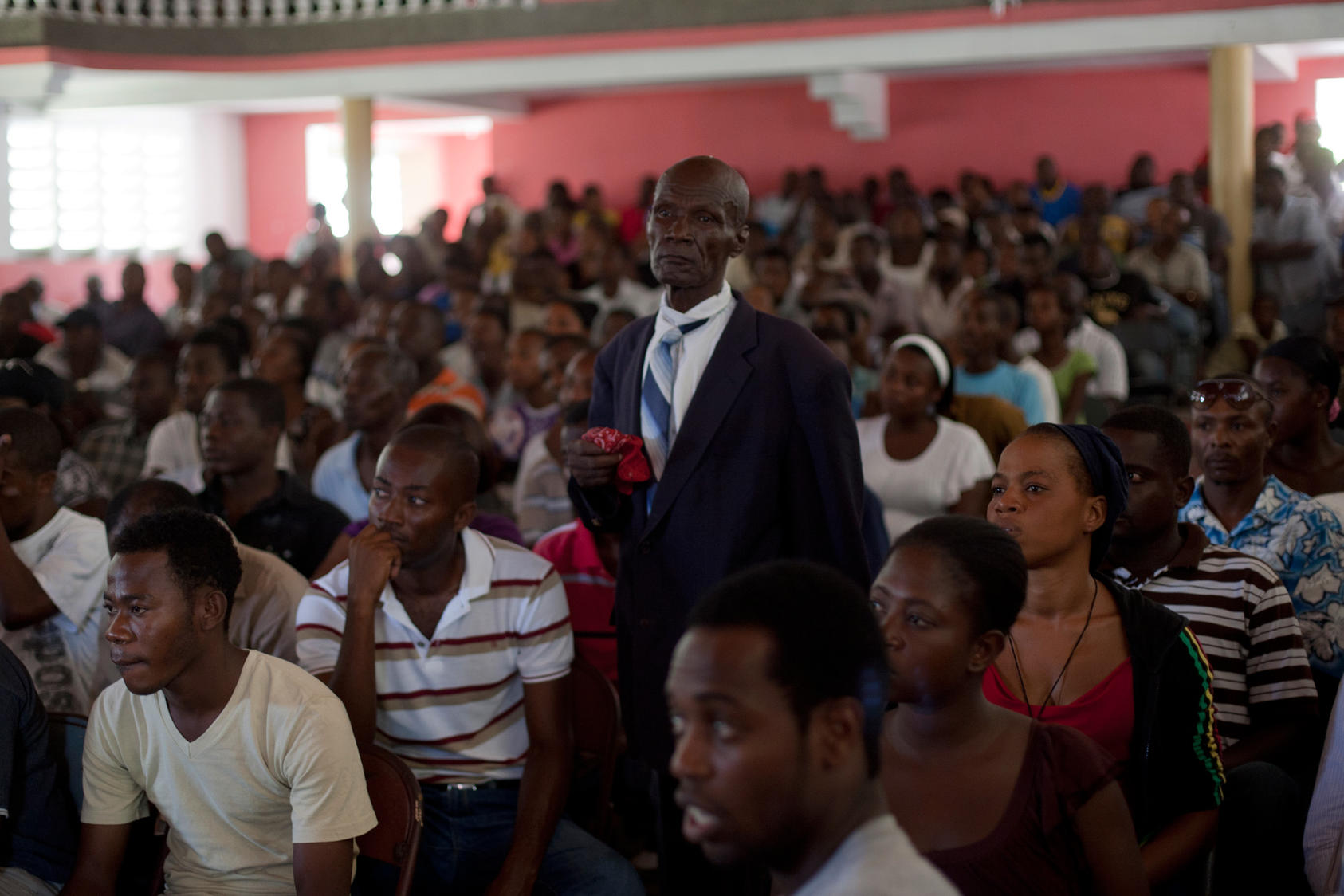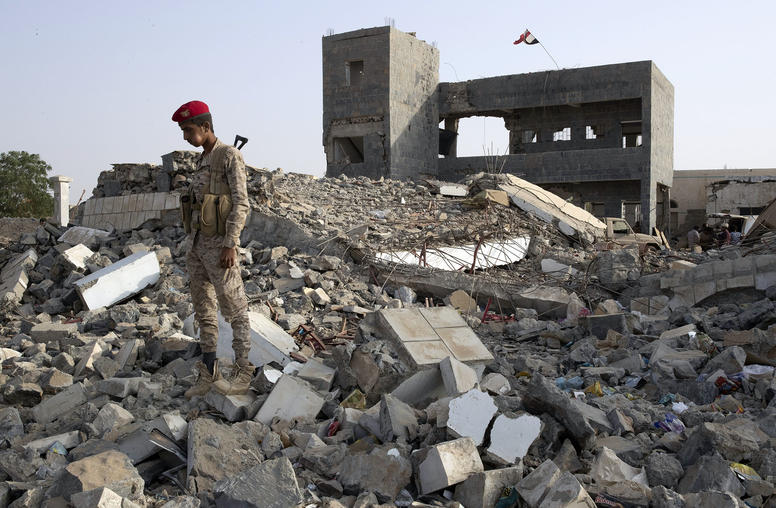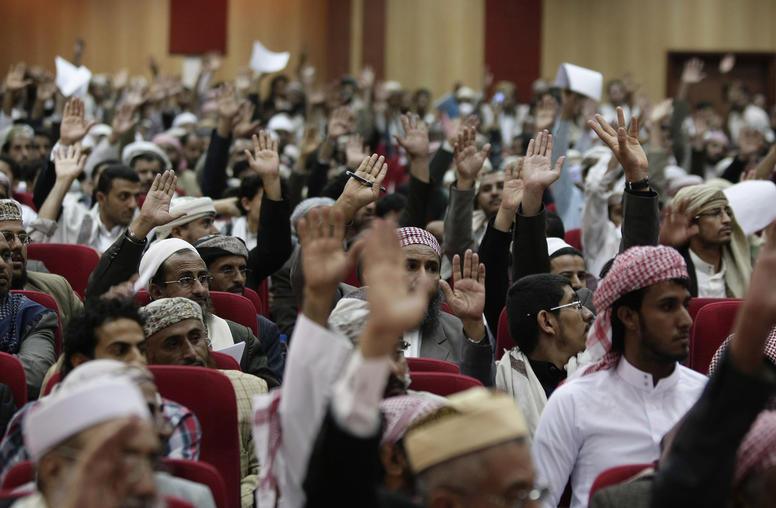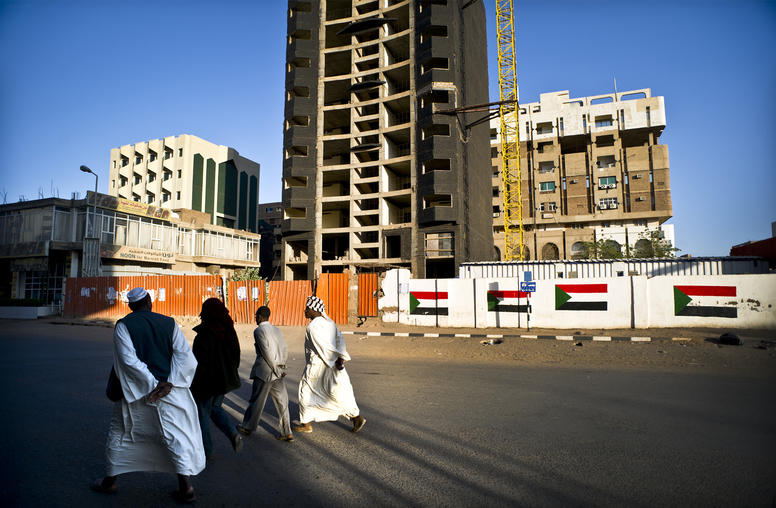Lessons from the Field: Innovation in Rule of Law Programming
A recording of this event will be available by June 30.
The U.S. and other foreign assistance providers have long supported programs that strengthen the rule of law to advance peace, democracy and development. Today, strategies and tactics are changing rapidly, with an increasing emphasis on coordinating aid, learning lessons from the field and using technology to heighten impact. On Friday, June 23, the U.S. Institute of Peace and the University of South Carolina’s Rule of Law Collaborative held a daylong symposium highlighting new approaches and technologies to further the rule of law.

Technologies like mobile banking and smartphone applications are emerging as valuable tools for advancing the rule of law. At the same time, the private sector is playing an increasing role in providing assistance—corporations, for example, are seeking to support changes on the ground as public demand increases for them to demonstrate social responsibility.
In the symposium, experts with diverse experience across the globe discussed a range of approaches and innovations, from a mobile app that connects legal defenders with civil society leaders to the more intangible challenge of building the political will to apply the rule of law. Others outlined programs in Yemen and Libya, as well as trends in how donors and those providing assistance coordinate and cooperate in providing their aid.
Agenda
9:00am - 9:30am - Welcoming Remarks
- Nancy Lindborg, President, United States Institute of Peace
- Lelia Mooney, Director, INPROL
- Joel Samuels, Director, Rule of Law Collaborative, University of South Carolina
9:30am - 11:00am - Panel I: Building Political Will to Create Demand for Justice Reform
- Enrique Roig, Creative Associates International
- Helen Olafsdottir, Rule of Law, Justice and Security Unit, United Nations Development Program
- Marieke Wierda, Policy Coordinator - Rule of Law Cluster, Ministry of Foreign Affairs, the Netherlands
- Moderator: Andrew Solomon, Senior Rule of Law Advisor, USAID
11:15am - 12:30pm - Panel II: How Organizations Use Creative Interventions to Overcome Obstacles
- Greg Gisvold, Director, Governance and Rule of Law, Democracy International
- Violaine Autheman, National Center for State Courts
- Rob Boone, Practice Manager, Justice and Rule of Law, World Bank Group
- Moderator: Lelia Mooney, Director, INPROL
12:30pm - 2:00pm Keynote Speaker: Sheldon Himelfarb, President and CEO, PeaceTech Lab
2:00pm - 3:45pm - Panel III: Innovations in Technology in Rule of Law Reform
- Kyra Buchko, Senior Technical Director, New Rule LLC
- Teresa Jennings, Head of Rule of Law Development, LexisNexis
- Jason Gluck, Policy Specialist, Political Dialogues and Constitutional Processes, United Nations Development Program
- Moderator: Steven Austermiller, Rule of Law Collaborative, University of South Carolina
3:45pm - 4:00pm Closing Remarks: Hamid Khan, Deputy Director, Rule of Law Collaborative, University of South Carolina



